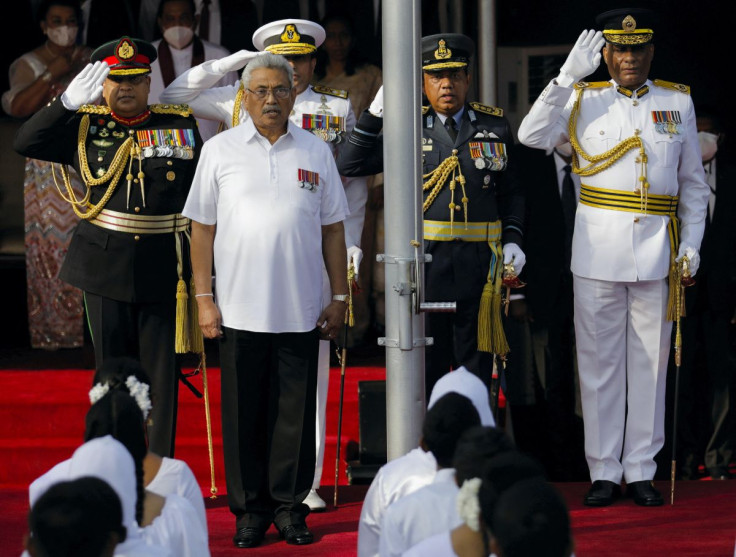Singapore Extends Stay Of Former Sri Lanka President Rajapaksa

Singapore has permitted former Sri Lankan president Gotabaya Rajapaksa to stay in the island republic for an additional 14 days, two sources familiar with the matter told Reuters on Wednesday.
A short-term visit pass issued when Rajapaksa arrived on a private visit two weeks ago has been extended, two separate sources in Colombo and Singapore, both with knowledge of the matter, told Reuters.
Rajapaksa is now able to stay in Singapore until Aug. 11.
The Immigration and Checkpoints Authority in Singapore did not respond to a request for confirmation on the extension of stay.
Rajapaksa landed in Singapore on July 14, a day after fleeing his crisis-ridden country via Maldives and following a popular uprising that forced him to resign as president.
At the time, the Singapore government said he had not been granted asylum, and was in the country on a private visit.
"It is my belief he may eventually consider returning to Sri Lanka but there is no definite political or other stance on this," Sri Lankan government spokesperson Bandula Gunwardena said on Tuesday.
If Rajapaksa returned to the country, the former leader would not be protected under law if any charges were filed against him, legal experts said.
"His immunity was only for the duration of his time in office as president. He can be prosecuted for criminal conduct, including bribery and corruption," lawyer Luwie Niranjan Ganeshanathan said.
Six-time prime minister Ranil Wickremesinghe took over as president following a victory in a parliamentary vote after Rajapaksa fled the country and resigned.
The country of 22 million people has been crippled by an economic crisis, with shortages of fuel, food and other necessities as foreign exchange reserves needed for essential imports dropped to record lows.
Sri Lanka might not be the last country where the government had fallen because of economic distress, the head of the main U.S. organization for humanitarian assistance said in the Indian capital of New Delhi on Wednesday, while being critical of China for financing opaque loans to the island country and funding infrastructure that was not essential.
"The calls to provide more significant relief have so far gone unanswered. And the biggest question of all is whether Bejing will restructure debt to the same extent as other bilateral creditors," Samanatha Power, who heads the U.S Agency for International Development (USAID), said in a speech.
China is Sri Lanka's third biggest lender, behind international financial markets and the Asian Development Bank (ADB). Japan is also a major lender to Sri Lanka.
Over the last decade and a half China has lent Sri Lanka over $5 billion for projects including highways, a port, an airport and a coal power plant. But critics charge the funds were used for white elephant projects with low returns, which China has denied.
Sri Lanka is in talks with China for up to $4 billion in assistance to help navigate its current financial crisis.
New President Wickremesinghe has outlined plans to have a donor conference involving India, China and Japan after the country secures a rescue line from the Interenational Monetary Fund (IMF). He said on July 18 that negotations with the IMF were nearing a conclusion.
© Copyright Thomson Reuters 2024. All rights reserved.





















